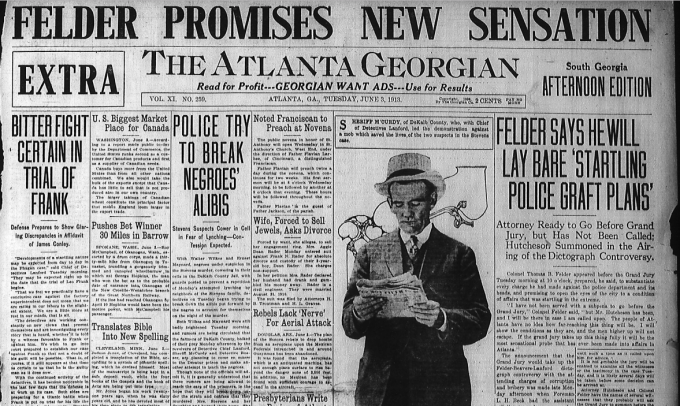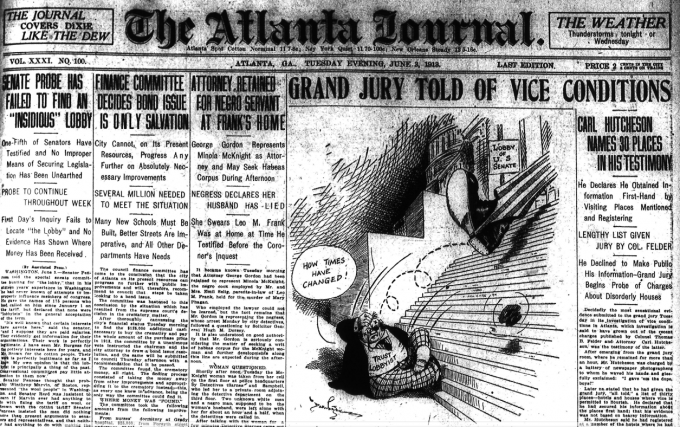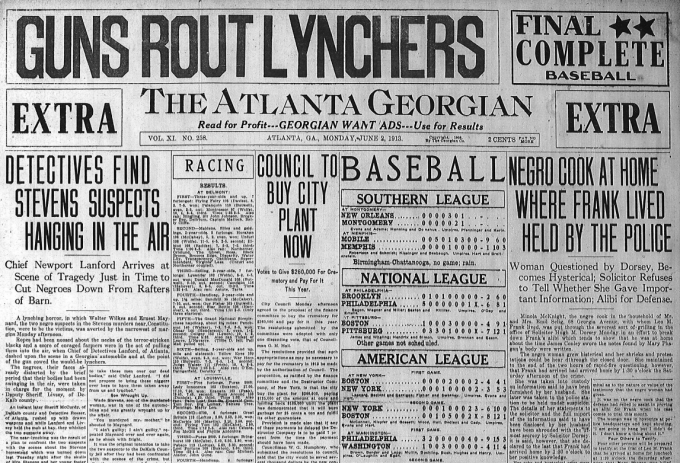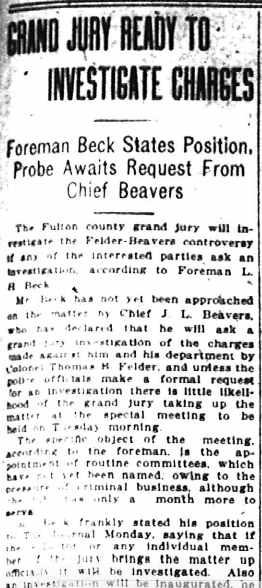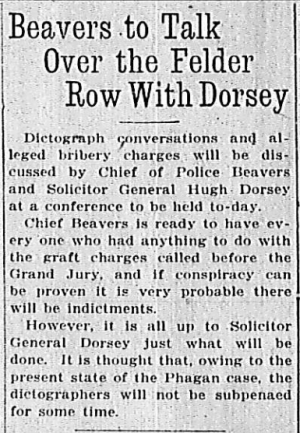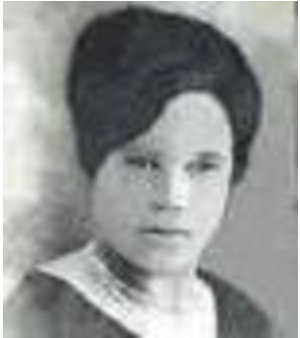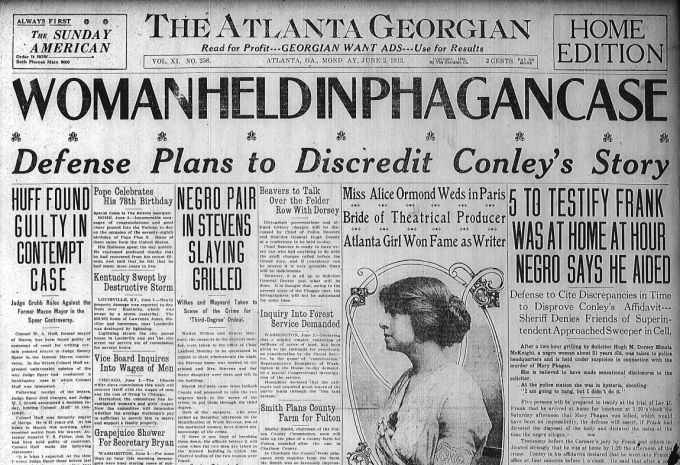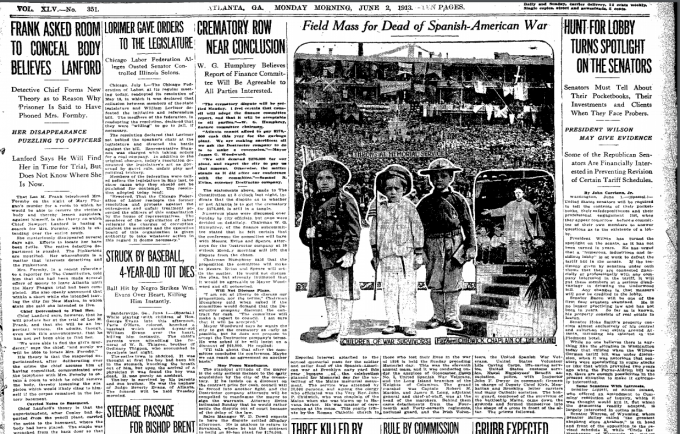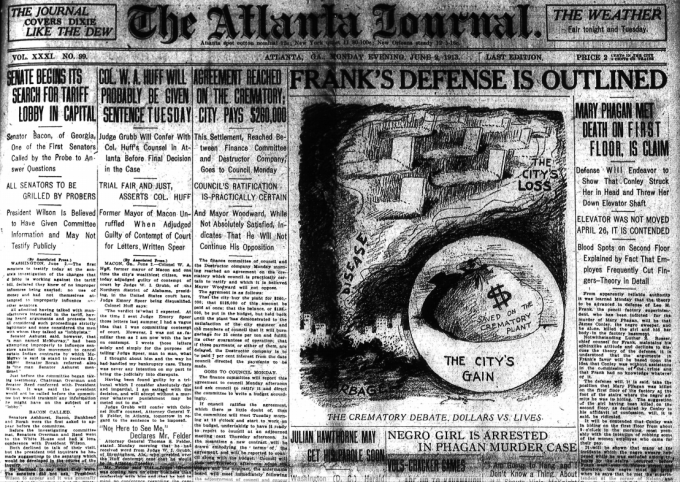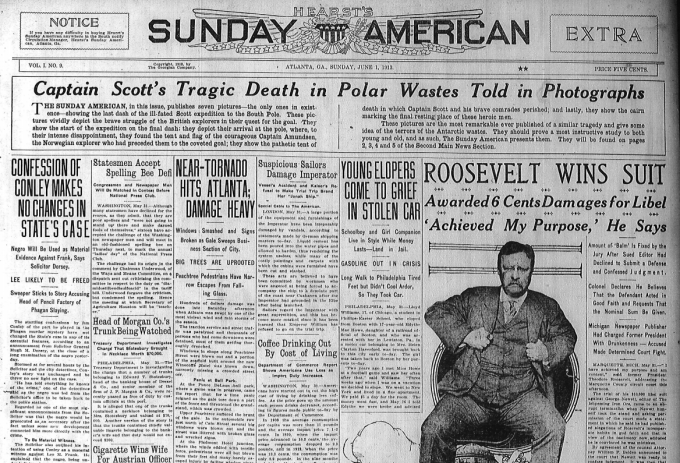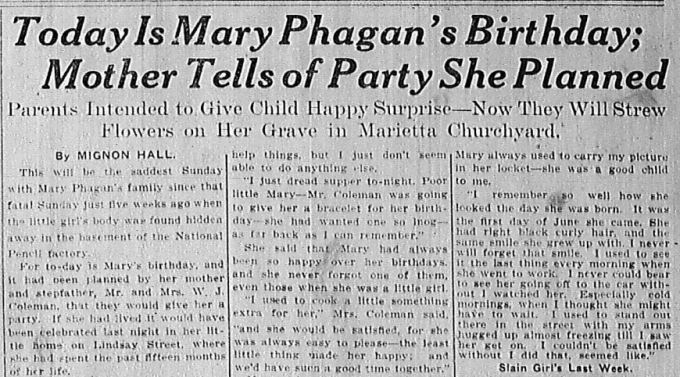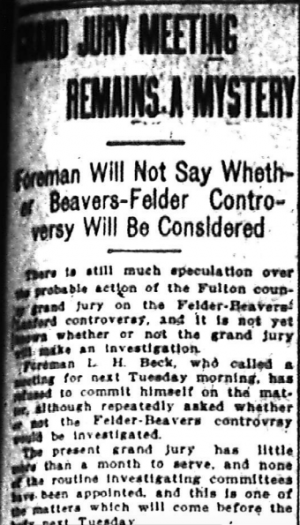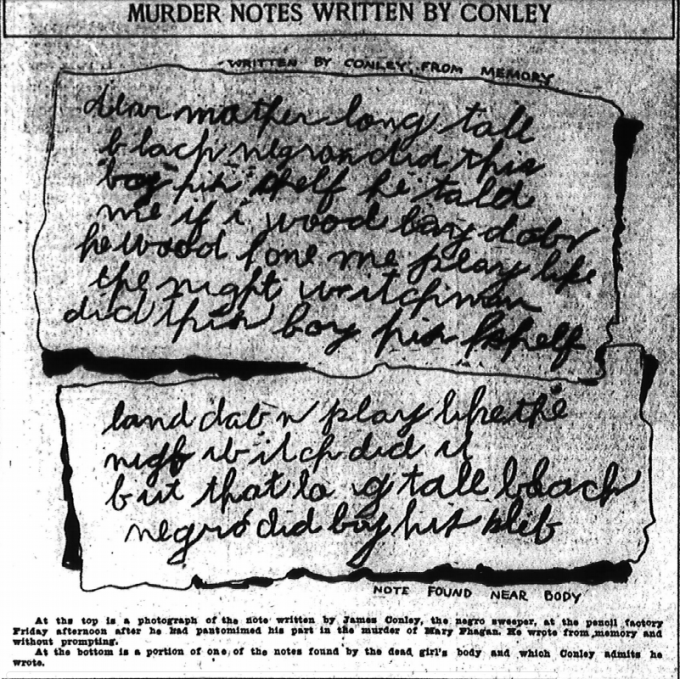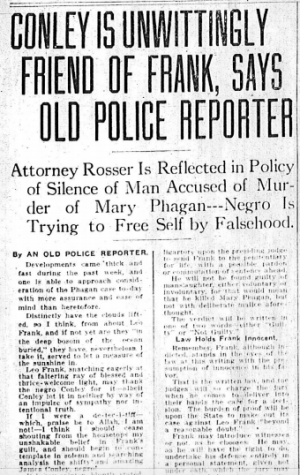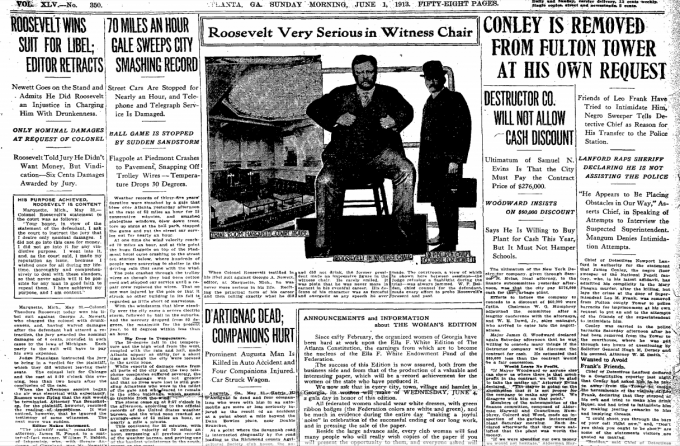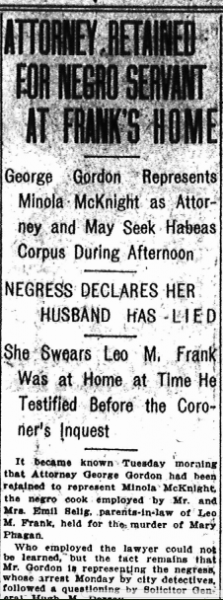 Another in our series of new transcriptions of contemporary articles on the Leo Frank case.
Another in our series of new transcriptions of contemporary articles on the Leo Frank case.
Atlanta Journal
Tuesday, June 3rd, 1913
George Gordon Represents Minola McKnight as Attorney and May Seek Habeas Corpus During Afternoon
NEGRESS DECLARES HER HUSBAND HAS LIED
She Swears Leo M. Frank Was at Home at Time He Testified Before the Coroner’s Inquest
It became known Tuesday morning that Attorney George Gordon had been retained to represent Minola McKnight, the negro cook employed by Mr. and Mrs. Emil Selig, parents-in-law of Leo M. Frank, held for the murder of Mary Phagan.
Who employed the lawyer could not be learned, but the fact remains that Mr. Gordon is representing the negress, whose arrest Monday by city detectives, followed a questioning by Solicitor General Hugh M. Dorsey.
It is also understood on good authority that Mr. Gordon is seriously considering the matter of seeking a writ of habeas corpus for the McKnight woman and further developments along this line are expected during the afternoon.
WOMAN QUESTIONED.
Shortly after noon Tuesday the McKnight woman was taken from her cell on the first floor at police headquarters by Detectives tSarnes [sic] and Sampbell [sic], who led her to a private room adjoining the detective department on the third floor. Two unknown white men and a negro man, supposed to be the woman’s husband, were left alone with her for about an hour and a half, when the detectives were called in.
After talking with the woman for a few minutes Detective Starnes came out of the room, gathered up a pen, ink and paper and went back. It is presumed that she has made some kind of a statement which the detectives consider significant and which they desire to take down in the form of an affidavit.
Attorney George Gordon was outside in the detective department for a portion of the time the woman was being questioned.
The hysteria which marked her demeanor when she first was arrested, has subsided, and Minola McKnight, the negro cook for Mr. and Mrs. Emil Selig, of 68 East Georgia avenue, home of Leo M. Frank, still sticks to the story she hysterically shouted throughout police headquarters Monday afternoon.
The negress was arrested at the Selig residence shortly after noon Monday upon the order of Solicitor General Hugh M. Dorsey.
She was carried to the solicitor’s office and that official with Detectives Campbell and Starnes examined her for more than an hour. The woman grew hysterical during the vigorous examination, and finally was led from the solicitor’s office to the police patrol, weeping and shouting: “I am going to hang and don’t know a thing about it.”
Later it developed that [t]he woman’s husband, Albert McKnight, had been in the room with the officers. Continue Reading →


